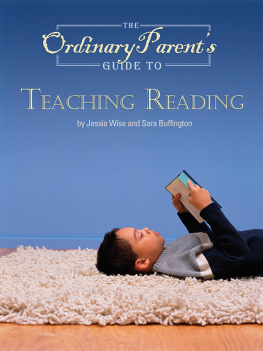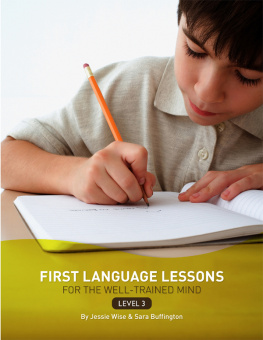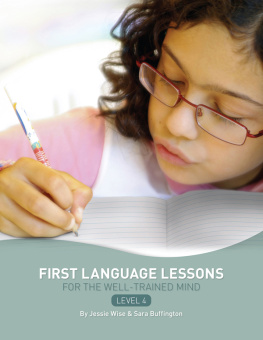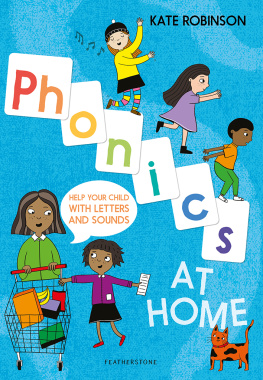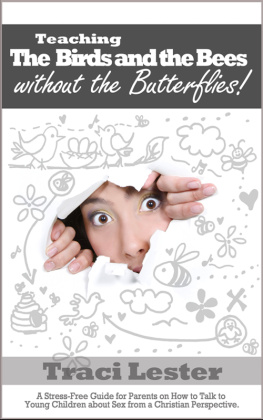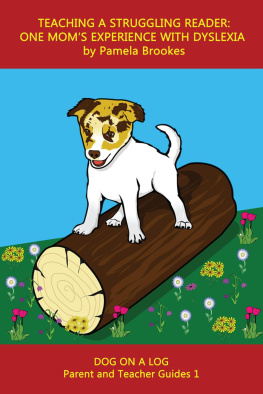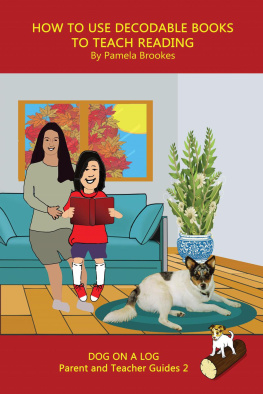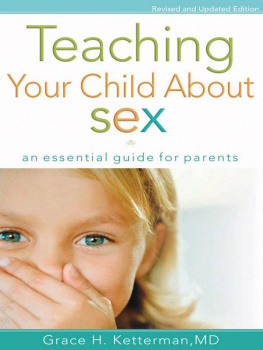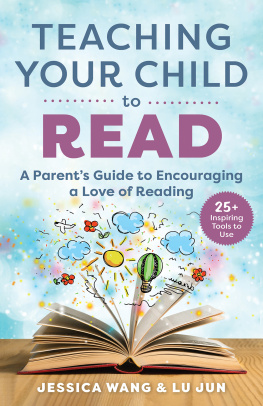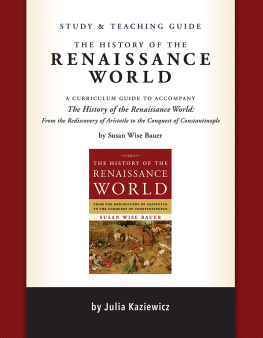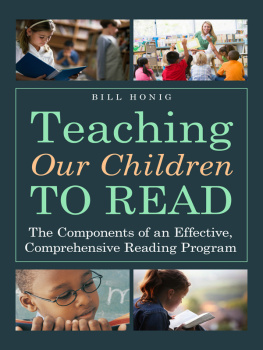
ALSO BY JESSIE WISE
First Language Lessons for the Well-Trained Mind, Levels 1 & 2
(PEACE HILL PRESS, 2003)
WITH SARA BUFFINGTON
First Language Lessons for the Well-Trained Mind, Level 3
(PEACE HILL PRESS, 2007)
First Language Lessons for the Well-Trained Mind, Level 4
(PEACE HILL PRESS, 2008)
WITH SUSAN WISE BAUER
The Well-Trained Mind: A Guide to Classical Education at Home
(W. W. NORTON, 1999, 2004, 2009)
www.peacehillpress.com
www.welltrainedmind.com
The Ordinary Parents Guide to
T EACHING R EADING
By Jessie Wise and Sara Buffington

PEACE HILL PRESS
CHARLES CITY, VIRGINIA
Copyright 2005 by Jessie Wise and Sara Buffington
All rights reserved
Printed in the United States of America
First Edition
Manufactured by Corley Printing Company.
Cover design by Andrew J. Buffington
Publishers Cataloging-in-Publication
(Provided by Quality Books, Inc.)
Wise, Jessie.
The ordinary parents guide to teaching reading / by
Jessie Wise and Sara Buffington.
p. cm.
Includes index.
LCCN 2003111093
ISBN 0-9728603-1-2
ISBN 978-0-972860-31-4
ISBN 978-1-942968-37-5 (e-book)
1. Reading--Parent participation--Handbooks, manuals,
etc. 2. Children--Books and reading--Handbooks,
manuals, etc. I. Buffington, Sara II. Title
LB1050.2.W57 2004 372.41
QBI33-2002
Peace Hill Press, Inc., 18021 The Glebe Lane, Charles City, VA 23030
www.peacehillpress.com
info@peacehillpress.com
Table of Contents
For a full index to the lessons, see page 363.
When I was in elementary school, a kid told me, You can read good because youre so smart. I know now I did well in school, not because I was smart, but because I could read well.
A child who reads well possesses a tool to make academic success possible. Reading is a lifetime skill that allows the child to fulfill professional dreams and function in a world of educated people. It can give pleasure and access to worlds beyond his reach both in space and in time.
I advocate teaching reading to the very young when possible. Children can recognize and name hundreds of things. They understand thousands of words. They are excited about learning new grown-up skills. If you can teach your child to read before school-age, he will be ahead in reading for the rest of his education.
But if you have a school-age child who is struggling with reading, dont waste time. The longer a child struggles, the more discouraged he becomes, and this discouragement will affect his overall academic performance.
If you have been told your child has a learning disability, teach him yourself before you give up on him. I have taught many children who had been given a disability label. They all learned to read. I believe that in each case there was a teaching disability in the childs educational historyusually a faulty method of teaching reading. I believe that all children who are not suffering from severe mental retardation or severe emotional upset can learn to read. And anyone who can read can teach another to read if provided with a systematic method that is used frequently, patiently, and consistently.
You can begin with Lesson 1 right away, or, if youd like additional guidance on reading readiness, pre-reading, the reading process, managing the reading lesson, remedial reading, or other issues, go to page 346.
Ive been working on this book for most of my life. When I was in second grade, I wrote a simple phonics reading book for a fellow classmate. His name was Elmore, and he couldnt read. I wrote the reading book in pencil, in a tiny notebook with Royster Fertilizer Company printed on the front.
Throughout my school years, I felt sorry for classmates who struggled with reading. I didnt understand why they didnt just sound out the letters. But these children had been taught with the new method of the time: memorizing whole words. I had been taught phonics at home.
I was adopted by an elderly couple who had been educated in an isolated, rural one-room schoolhouse. By her eighth and final year of school, Meme had studied algebra, Latin, and the literature excerpts in the old McGuffeys readers. Uncle Luther had stopped school after sixth grade, but he had an aptitude for mathematics and taught himself carpentry and draftsmanship. They lived on a small subsistence farm in Tidewater Virginia.
Meme and Uncle Luther had been taught reading and spelling by sounding out letters, and they began to teach me the same way, forming words with alphabet blocks. Later they taught me to write on a small blackboardIm sure their own school experience had included a slate!
The first-grade teacher in the local public school heard that Meme and Uncle Luther were teaching me to read at home using old-fashioned methods. The teacher made a special visit to our home to tell them to stop teaching me. Reading is not taught this way anymore, she warned. There are new methods. You will ruin her education if you persist in doing things the old-fashioned way.
Meme and Uncle Luther went right on teaching me as before.
The high-school boy who helped Meme with chores brought us books from the local public school. Soon I was reading the old Elson-Grey readers and other books from the school libraryRaggedy Ann, fairy tales, Aesops fables, and easy history books.
My education wasnt ruined by my early reading lessons; I was placed directly into second grade when I started school. I consistently remained at the top of my class throughout school. I was also the only girl in that small, rural class to graduate from college. I think the foundation that I was given in reading and the encouragement to do well academically were keys to that success.
When I went to college, I knew that I wanted to be a teacher. One of the required courses for teacher certification was Teaching Reading in the Elementary School. It was a hodge-podge of lists of sight words, boring readers, and curricula planned around the childs interest rather than his academic skills.
When I was face-to-face with my own sixth-grade class that included two boys who had not yet learned to read, I knew I couldnt use the ineffective methods I had been taught in college. I had to rely on the memory of how I had been taught to read. The next year when I taught a second-grade class of thirty-eight children (fifteen of whom didnt yet know their alphabet), I made up phonics cards, again from my memory. I wrote the letter sounds on construction paper and posted them on the walls of my classroom. We drilled these sounds each morning. By the end of the year, every child except one was reading on or above grade level.
Having observed so many children in school who could not read, I remember thinking, If I ever have a child, he will know how to read before he goes to school.
So when my oldest child turned four, I said to him one day, Bob, would you rather take a nap, or would you like to learn how to read? He chose reading! I started him on the old-fashioned phonics Id been taught when I was a child. Id lie down with him on his little bed after lunch and work on letter sounds. (Since I also had a two-year-old and a thirteen-month-old, I was always glad to lie down.) That year we practiced vowels and consonants and sounded out new words. We called it doing kindergarten.
The next year, my middle child was three, and she wanted to be included. My do kindergarten, too, she said. I held her in my lap and taught her the letter sounds. She learned to read that year!
Next page
